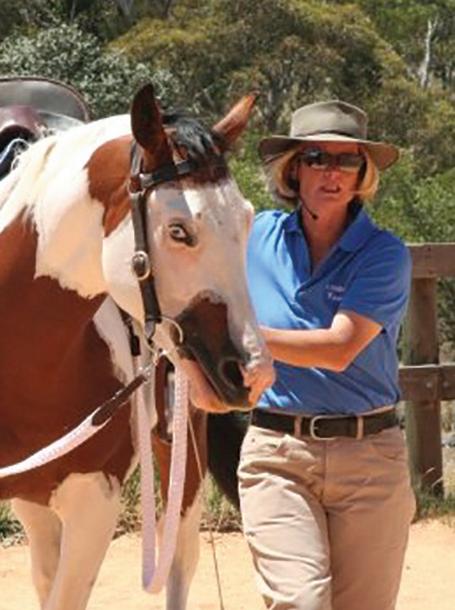1 minute read
Strategic worming/yearly worming regime.
Next Article
By JACQUI PANOZZO, BSc (Hons), PhD
Afact that all horse owners must become comfortable with, is that horses will always have a worm burden.
The job of the horse owner is not to eradicate worms from your horses, rather it is to manage infections and pastures to limit or reduce worm burdens.
Small strongyles are the most prevalent parasite of horses, and as such, management regimes should focus first and foremost on these parasites and all other parasites second.
Small strongyles have very short lifecycles (as short as 6 weeks) and infective larvae can survive for over six months on pasture. Selective treatment involves only de-worming animals that require it. The best way to tell if a horse requires de-worming is to have a faecal egg count (FEC) performed on them.

FECs enumerate the number of worm eggs being shed in their manure and allows an informed decision to be made about if a horse requires treatment. The result of a FEC is given as EPG (worm eggs per gram of manure), with it generally accepted that horses with EPG of above 200EPG require treatment.
To incorporate selective treatment into your horse’s healthcare, start with two FECs a year, and then treat as required. Younger horses, those identified as high egg shedders, or horses that are immunocompromised (e.g. EMS horses) will require routine FECs every 3-4 months. Overall, a yearly worm management regime should follow something along the lines of the table. (Table 1).
Most horses will only require a single treatment once a year as an 'annual cleanout'.
It is best to choose a dewormer that will target as many parasite types as possible; strongyles, bot fly larvae and tapeworms. An example of this once a yearly wormer would be an avermectin (for strongyles and bot fly) plus praziquantel (for tapeworm). More information about dewormer types can be found on the WormCheck website. www.wormcheckaustralia.com
Table 1: Yearly worm management regime
Choose an anthelmintic that will also treat for bot flies & tapeworms to target all potential parasites in 'annual cleanout' Collect and compost manure
Young horses/high shedders should be checked via FEC.
Treat as per FEC results
All horses should be checked via FEC.
Treat as per FEC results
Young horses/high shedders should be checked via FEC.
Treat as per FEC results per FEC
FEC









